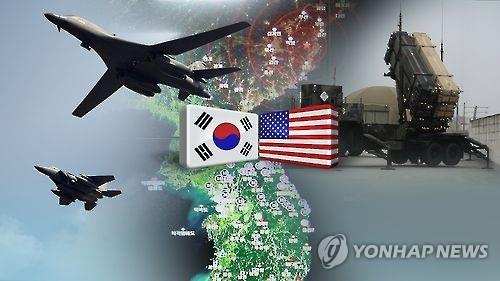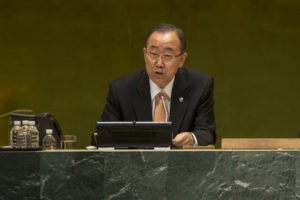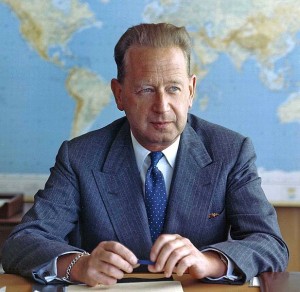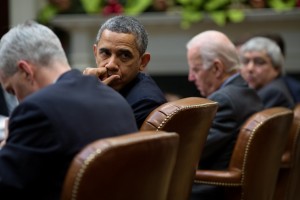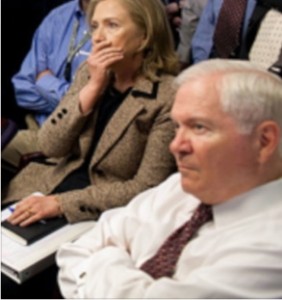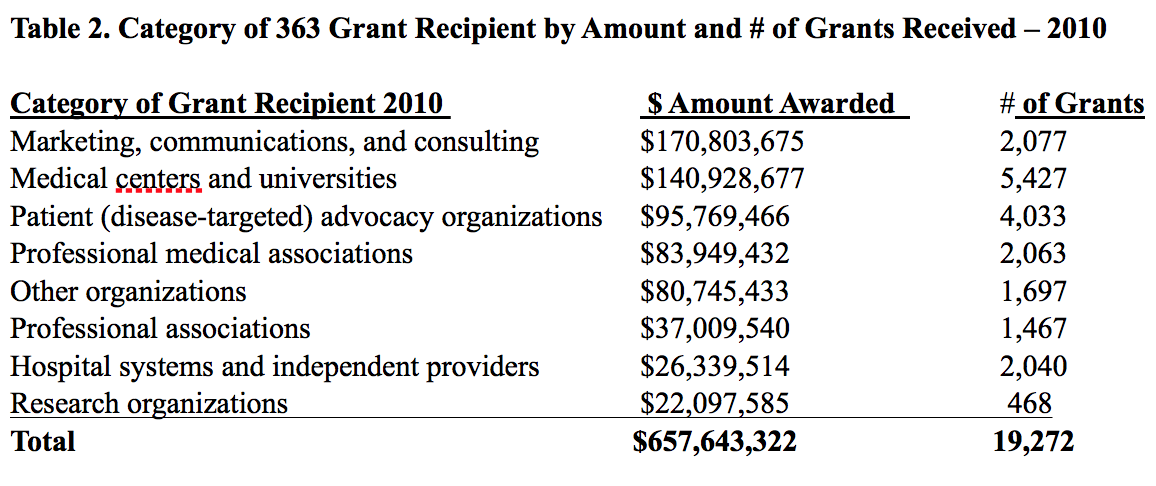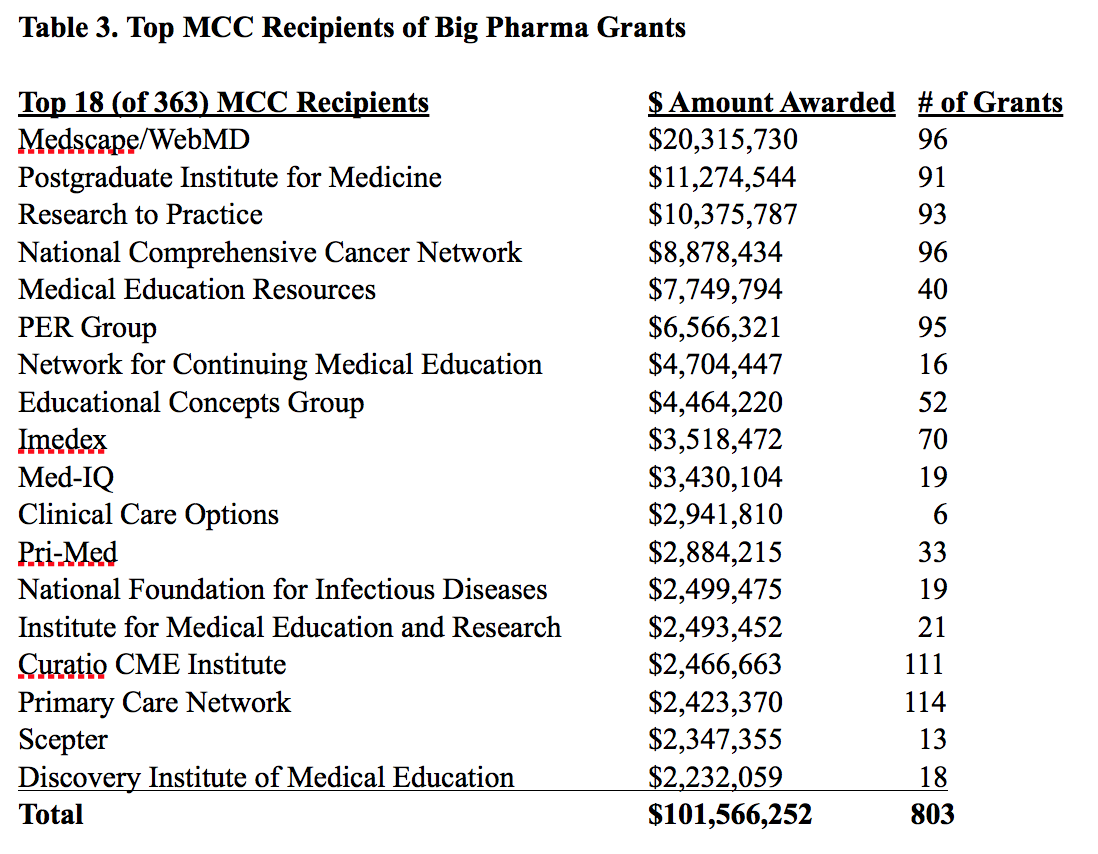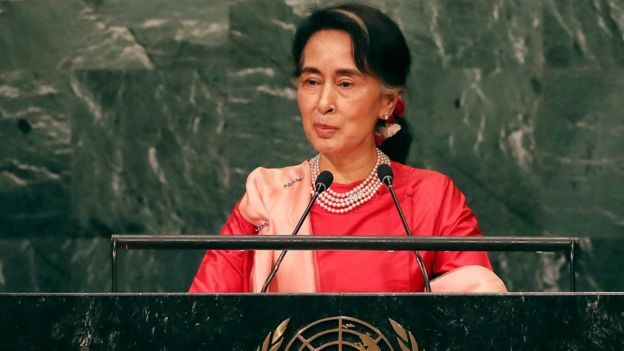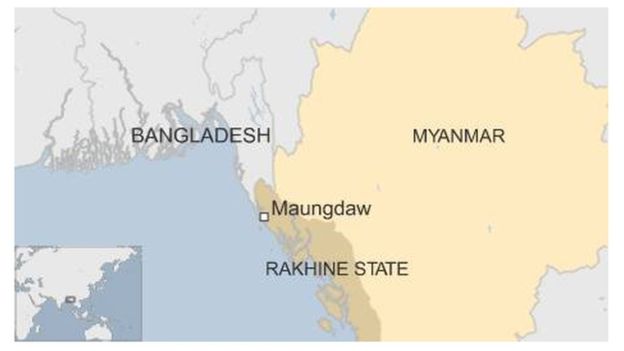Los imperios genocidas occidentales (IGO), en franco retroceso –aunque debido a una especie de espejismo parecería lo contrario en distintos aspectos–, diseñaron varios planes para detener su marcha atrás y volver a ubicarse en el papel de absolutos mandamases del planeta. Dos de esos planes se ocuparon centralmente del control total, de ser posible, de la variante energética y de un nuevo “divide y reinarás” a ser implementado en particular en Medio Oriente.
El primero se enfocó en el manejo del petróleo y la reducción vertiginosa de su precio (la primera caída significativa fue alrededor del 2010), con dos objetivos centrales: a) que cese, e incluso se derrumbe, el crecimiento económico y financiero que se producía gracias a la renta petrolífera en distintas zonas y países, especialmente Rusia, Venezuela y Medio Oriente; b) tratar de impedir el desarrollo de energía renovable (solar, eólica, hídrica), pues en la práctica sería mucho más difícil controlarla monopólicamente.
El segundo, en estrecha relación con el anterior, perseguía volver a rediseñar toda la geografía política de Medio Oriente y algunas zonas de Africa con el objeto de robar a manos llenas las riquezas minerales y otras de esos lugares, a través de nuevos gobiernos proclives a los planes de los IGO . Deberíamos pensar que no es casual que las acciones destinadas a producir ese rediseño comenzaron en el 2010 bajo la denominación de “Primavera Árabe” (“PA”), ya que alrededor de esa fecha se produce la caída del precio del petróleo.
Para la ejecución artificiosa de la “PA” se tomaron medidas y se llevaron adelante preparativos y estudios con bastante antelación, como lo hizo conocer el general yanqui a cargo de la OTAN en Kosovo, Wesley Clark. Vale la pena escuchar a este general en distintos videos que se encuentran en la web.
La puesta en marcha de la “PA” se inició con cierto éxito, pero enseguida sufrió los avatares de la realidad, los cuales la fueron estancando. Pero el desastre económico, militar, ecológico y de la infraestructura de los países afectados que ya provocó y sigue provocando, fue y es realmente catastrófico. Como dijo el presidente constitucional de Siria, en pocos meses su país retrocedió más de 25 años en su desarrollo e infraestructura. Y ni hablemos de Libia, el país con la mejor calidad de vida de Africa, que ha “retrocedido”, por medio de un bombardeo asesino implacable de los IGO, prácticamente a las épocas de las cavernas, del hombre primitivo.
Al principio parecía que las cosas marchaban bien para los IGO. La “PA” arranca en Túnez y avanza a través de Líbano, Egipto, Libia, para dirigirse luego hacia Irak, Siria, Yemen y otras zonas.
Cuando todo parecía indicar que el plan artificioso culminaría exitosamente según lo diseñado, aparece en escena un actor al que seguramente no se tuvo en cuenta o se subestimó. Me refiero a la Rusia de Putin. Lo que siguió es conocido por todos. Los IGO no pudieron avanzar como tenían planeado y entonces empezó una multiplicada agresión demencial contra Siria e Irak, extendida luego a Yemen, por medio de bandas terroristas mercenarias, para borrar del mapa no solo los gobiernos del área sino las fronteras de los países. Como dijimos, el plan de los IGO era rediseñar las fronteras de toda la zona a través de la creación de “nuevos estados” que servirían como “estados tapones” o “estados inestables” o “estados clientes” o “estados de conveniencia” para distintas trapisondas, de modo que siempre jueguen a favor de los IGO. Se intentaba repetir la aplicación, de manera redoblada, del “divide y reinarás” que tanto les había beneficiado anteriormente. Se intentaba crear nuevos “pakistanes”, como con tanto éxito lo hizo el imperio inglés. Se crearían estados kurdos, estados cristianos, estados sunnitas, estados shiitas, de manera de tener a mano fuerzas que luego llevarían a que choquen entre sí para beneficio indefinido de los IGO.
Además de esos dos planes centrales, había y hay otro objetivo que para los IGO es muy importante, quizás más importante que lo antes mencionado: hacer desaparecer el Islam.
El Islam: La piedra en el zapato
En la historiografía argentina hay un dicho respecto a la importancia revolucionaria de Perón y su doctrina primigenia que reza así: el peronismo es el hecho maldito del país burgués. De la misma manera, para los IGO y su pandilla de lacayos y serviles, el Islam es el hecho maldito de la supuesta democracia occidental. Había que terminar con Perón y el peronismo –que es prácticamente lo mismo que desnaturalizarlo– para terminar con la “maldición” que pesaba sobre los oligarcas, criminales y explotadores en la Argentina: esa “maldición” era que la política de Perón impedía a las clases parasitarias y chupasangre seguir saqueando las riquezas que pertenecían a todo el pueblo argentino. Es necesario terminar con el Islam –que es prácticamente lo mismo que desnaturalizarlo– para terminar con una religión-ideología-filosofía-práctica-economía que en su esencia primigenia resulta absolutamente lo opuesto a lo que persiguieron y persiguen los IGO. Por lo tanto, es imprescindible para los IGO reducir el Islam primigenio a una mínima expresión. O adulterarlo completamente de modo que, en todo caso, solo quede la carcaza de un cuerpo que se llamaba “islam”, desprovisto de todo contenido islámico o pervertido hasta tal punto que de ahí en adelante se llame “islam” a principios, políticas y filosofías absolutamente antiislámicas. Y sumado a ello, atomizar ese supuesto cuerpo que lleva por nombre “islam” en incontables grupúsculos opuestos entre si pues, como dice el refrán, “a río revuelto ganancia de pescadores”. O centralizar todos sus componentes férreamente bajo una conducción falsamente islámica, como pretendieron hacer los IGO con la creación primero de Arabia Saudita y luego de los grupos terroristas tipo ISIS, Al Qaeda, Al Nusra, etc. De máxima, su intención es enviar al Islam al basurero de la historia.
La combinación de los cuatro aspectos mencionados por parte de los IGO –control del precio del petróleo para destruir las economías que dependían en gran medida del mismo; impedir la amplia implantación de las energías alternativas sustentables; rediseño de la geografía política, especialmente en el Medio Oriente; destrucción o desnaturalización de prácticamente todo el Islam– tuvo, no obstante, consecuencias no esperadas:
1) China se transforma en uno de los países poseedores de la mayor cantidad de petróleo extraído y/o refinado.
2) El principal lacayo y marioneta de los IGO en la zona de Medio Oriente, es decir, Arabia Saudita, sufre una notable pérdida de poder económico y político debido a varias causas.
3) Rápida readecuación de Rusia a la nueva situación en el tablero internacional y puesta en marcha de renovados procesos económicos-industriales que la colocan indiscutiblemente a la cabeza del desarrollo e influencia en los acontecimientos mundiales, cosa que molesta de manera muy aguda a los IGO. Estos trazan entonces distintos planes para sofocarla-reprimirla-atacarla, pero se llevan la gran sorpresa que el pato le salió gallareta o, lo que es lo mismo, fueron a cazar y se ven frustrados una y otra vez.
4) Proyección con gran fuerza de la urgente necesidad de un orden socio-económico-ecológico distinto al instaurado en el mundo por los IGO. A la cabeza de esa propuesta se presentan centralmente Rusia y China.
5) Ante la nueva situación entre Rusia y EEUU debido al notabilísimo papel que jugó y juega Rusia en Siria, intensificación de la relación económica-financiera entre Rusia y China.
6) Surgimiento de importantes acuerdos entre la OPEP y Rusia, lo cual resalta más la importancia de Rusia en la geopolítica internacional.
7) Situación insostenible y/o crítica de la seguridad de EEUU a nivel geológico, ecológico y de salud ambiental, debido a la extracción de petróleo por medio del fracking (Son muchos los temores que esta práctica despierta, puesto que produciría cáncer y temblores de tierra y deja el agua contaminada con elementos radiactivos o tóxicos).
Los siete puntos mencionados no estaban en los cálculos de los IGO –por lo menos con el vigor que tienen–, lo que hace que estos, ante un fracaso de hecho, vean como única salida para seguir manteniendo su hegemonía maléfica, la tercera guerra mundial. Pero aquí vuelve a darse otra paradoja para los IGO: hasta no hace mucho estaban absolutamente seguros que no tenían rivales en un posible enfrentamiento armado a nivel mundial. No obstante, ya se sabe que eso no es así. Ya se sabe que Rusia y China pueden deparar sorpresas increíbles también en ese plano, mal que les pese.
A los siete puntos anteriores hay que sumarle una octavo elemento, que entiendo muy pocos lo tendrían en cuenta. Algo que puede significar una implosión que terminaría por socavar los pilares de los IGO y derrumbar su poderío irremediablemente: el proceso desatado con una virulencia nunca vista por los genocidas occidentales dentro de lo que se conoce como “Islam”.
Breve historia para ubicarnos en el contexto
Apenas muerto el profeta del Islam se inicia una etapa de destrucción del mismo, no desde el exterior sino desde su interior. Quienes eran enemigos mortales del profeta y del Islam, habían fingido islamizarse y pasar a ser, supuestamente, “íntimos” de Muhammad, con el único objeto de salvar sus vidas y sus riquezas. Pero mantenían, bajo el manto de la hipocresía más abyecta, todos sus deseos e intereses antihumanos y un odio sin igual hacia quien les dio cobijo. Apenas fallecido Muhammad sabotean el Islam de distintas formas con el objeto de volver a la época en la que ellos reinaban, marcada por: la explotación inicua de sus súbditos; el robo de las riquezas perteneciente a la gente y a sus pueblos; reducción a la servidumbre de los habitantes de esas tierras (trata de personas, amenazas, coacciones, abuso de autoridad, detención ilegal, exacción, extorsión, rapto, reclusión en aislamiento, estupro violento); aplicación de la tortura como algo normal; asesinatos masivos e individuales o destierro de cualquiera que reclame justicia o realice críticas, etc.
Esos enemigos del Islam, disfrazados de musulmanes y pasando distintas vicisitudes, se imponen sobre los seguidores sinceros del profeta Muhammad, luego de la muerte de este, mediante la fuerza, la compra de voluntades, los asesinatos en masa, la tortura y cuanta bestialidad puedan realizar. Y con distintas variantes, en más y en menos, tal cosa dura….. ¡1400 años!
Esa situación no pasó desapercibida para los IGO. En la época contemporánea, Napoleón primero, luego el imperio británico y el imperio alemán, a continuación el nazismo y muy poco después los EEUU, se aprovecharon plenamente del hecho de que el “Islam” había pasado, en gran medida, a ser un elemento hueco, vaciado de casi todo el contenido provisto por el profeta Muhammad. Lo que hicieron entonces, paso a paso, fue llenar ese elemento hueco con un nuevo contenido: el que les convenía. Por lo tanto, la representación oficial y mayoritaria del “Islam”, de hecho, la pasaron a tener los imperios occidentales. Y la principal banda de pillos utilizada para sus planes fue la constituida por Arabia Saudita: bajo la bandera del Islam se engendró la más espantosa política antiislámica.
Siempre existió una resistencia a esa degeneración. Pero un tenue cambio con buenas perspectivas recién empieza en 1979 con la revolución islámica en Irán. Y en menos de 40 años (¡después de 1400 años!), los hechos conducen a la situación actual, cuya expresión más álgida, si se quiere, se refleja en los acontecimientos de Medio Oriente y Africa.
Al evaluar los IGO las nuevas posibilidades propicias para el verdadero Islam que aparecían en el horizonte, elaboran un “reordenamiento de las cosas” para seguir dominando. Y en ese “reordenamiento” ven imprescindible no perder el manejo de las fuentes de energía pues es de importancia estratégica y entraña poder hegemónico. Deciden entonces una jugada bien planificada para no solo quedarse, de ser posible, con las importantísimas reservas de hidrocarburos, sino para terminar también con el resurgir del Islam primigenio que, como espada de Damocles, pondría en peligro permanente todos sus saqueos y robos. Y a ello agregan el peligro que les representa una nueva y dinámica Rusia. Y como en los planes de los IGO está quedarse con todo Medio Oriente para luego fagocitarse Irán, de tener éxito darían un gran paso en la dirección de cerrar un cerco de acoso y destrucción de Rusia.
Si se quiere plantearlo muy resumidamente, este es el disparador de la llamada “Primavera Árabe”.
Como base para el lanzamiento de la “PA” toman la experiencia relativamente exitosa de los ingleses con la separación de territorio de la India para crear Pakistán y el triunfo de EEUU sobre los soviéticos en Afganistán. Y el golpe mortal al Islam pensaban darlo presentando las más brutales y repugnantes acciones preparadas por ellos mismos (es decir, por los IGO), como si fuesen “islámicas”. Ese es uno de los principales motivos para que los IGO creen, pertrechen y lancen a una tropelía de sangre y fuego al ISIS, Al Qaeda, Al Nusra, Boko Kharam, Al Shabaab, Jemaah Islamiyah, Emirato del Cáucaso, Lashkar-e-Tayyiba, Abu Sayaf, etc. De esa manera los IGO pensaban arrasar con el Islam intelectual, política, ideológica, doctrinal y religiosamente. Para ese fin reclutan mercenarios en más de cien países del mundo, a los que disfrazan de musulmanes y les ponen jefes norteamericanos, franceses, belgas, ingleses, israelíes, turcos, etc, así como árabes antiislámicos. Todos ellos, subrayo para que quede claro, disfrazados de musulmanes: atuendos, estandartes, pendones, consignas, frases, algunas prácticas rutinarias y cosas por el estilo. La escenificación (pour le galerie) se montaba lo mejor posible para engañar a la mayor cantidad de gente posible con el objeto de desvirtuar el Islam primigenio de la manera más amplia posible y destruirlo lo más profundamente posible. Esta es una cuestión de primerísima importancia para los IGO, porque lo que quieren es que la población mundial piense que si el Islam es eso, merece ser despreciado, odiado y liquidado. Y de conseguirse tal cosa, pasarían a manejar, de modo incontestable, cientos de millones de personas.

La “Primavera Árabe”, uno de los acontecimientos más relevantes de la historial mundial contemporánea
Los cuarteles generales para las operaciones terroristas del ISIS y demás, se establecieron en Arabia Saudita, Turquía, Qatar y Jordania. Allí se armaron y arman, prepararon y preparan, entrenaron y entrenan, adoctrinaron y adoctrinan en el falso islam los mercenarios de más de cien países, a los que se lanzaron y lanzan a cometer las peores infamias y canalladas posibles con el objeto de, mediante la triquiñuela explicada, desprestigiar al Islam primigenio para siempre.
De todos modos, en esto hay un dato que no se puede pasar por alto: una importante parte de esos mercenarios se dicen musulmanes. ¿Por qué? ¿Qué es lo que les hace creer que son musulmanes y que su atroz conducta es propia de la doctrina islámica? Esto es algo que hay que dilucidarlo perfectamente.
Formalmente, las personas musulmanas en el mundo son unos mil quinientos millones. Alrededor del 90% son los llamados “sunnitas”. Arabia Saudita ejerce en muy amplia medida la tutela de las dirigencias de esa masa o de los que responden a las mismas, centralmente, por motivos económicos.
De aquellos vientos son estas tempestades. De la dominación-instrumentación del wahabismo (fines del siglo XIX hasta nuestros días) por parte de los IGO, surgen las primeras bandas terroristas bajo la supuesta bandera del Islam en Medio Oriente.
Para verlo mejor, cito algo de lo escrito en la materia en el libro del Dr. John A. Morrow titulado “El Minarete y el Campanario. Los Pactos del Profeta Muhammad con los Cristianos del mundo” (University Press of the South, 2015, EEUU):
“Moritz, quien había servido como director de la Biblioteca Khedivial en El Cairo, no podía ser un hombre objetivo, imparcial, pues era un agente y propagandista del imperio alemán (88, 92, 96, 147, 372, nota 12). En opinión de Leo Frobenius (1873-1973 C.), otro agente político y espía celoso, Moritz “despreciaba a los pueblos orientales en lo más profundo de su corazón” (citado por McMeekin 147). Moritz perteneció a una pequeña camarilla de agentes alemanes que empujó el mundo islámico al conflicto con el fin de satisfacer sus propios fines políticos, económicos y militares. De la misma manera que los británicos encabezaron la creación del extremismo “islámico” y el salafismo durante la revuelta árabe con el fin de destruir lo que quedaba del Imperio Otomano, los alemanes apelaron también al nacionalismo árabe y al sentimiento religioso musulmán para conseguir apoyo a su causa. Agentes como Moritz debían convencer a los árabes de que los intereses alemanes y los intereses islámicos eran uno. Mediante el pago a las autoridades religiosas …. obtenían fatwas en apoyo de la jihad alemana contra los Aliados (McMeekin 200, 201-209, 214-15, 233).
Aunque los clérigos corruptos decían que esos dividendos tenían un carácter religioso, todos sabían de qué se trataba: sobornos a cambio de colaboración con los poderes colonialistas. Si los alemanes estaban recabando apoyo de los turcos, de los bereberes, de los persas y de algunos árabes, los británicos estaban diseminando el salafismo ─en el que ahora se encuentra inmerso (el gobierno) de Arabia Saudita─ con el objeto de expulsar de Medio Oriente a los otomanos. Al ocupar EEUU el papel de poder imperial en el siglo XX, heredó de los británicos el salafismo y lo pasó a usar en sus planes para el mundo musulmán. Para mayor información sobre esto, los lectores pueden recurrir a The Two Faces of Islam de Stephen Suleyman Schwartz (1948 – …. C) y a God’s Terrorists: The Wahhabbi Cult and the Hidden Roots of Modern Jihad de Charles Allen”.
Este es el origen contemporáneo, guste o no, de los grupos terroristas disfrazados de musulmanes. Y esos grupos eran terroristas porque cometían las mismas atrocidades que cometen hoy día el ISIS y sus parecidos. Y estaban disfrazados de musulmanes porque sostenían ideas y prácticas absolutamente contrarias a la doctrina del Islam de Muhammad. Ninguna duda cabe, repito, que de aquellos vientos en el mundo sunnita, muy bien aprovechados por los IGO, son estas tempestades. (Ver, por ejemplo, en http://www.voltairenet.org/article186380.html, lo que dice Jean-Michel Vernochet: “Si nos tomamos el trabajo de consultar a los innumerables doctores del islam cuyos trabajos podemos encontrar en internet, notaremos que el wahabismo [1], que es la ideología de los degolladores de Daesh [2], constituye una verdadera ruptura epistemológica con la tradición islámica clásica, al igual que en relación con lo que podemos llamar el islam popular. Cuando hablé de eso, personalmente y cara a cara, con el erudito militante Sheikh (jeque) Imran Hossein, este se mostró totalmente de acuerdo con esa definición de la doctrina wahabita. Estuvimos de acuerdo en que se trata de una herejía cismática que los sabios musulmanes, y también los intelectuales laicos árabes, designan con el término dajjál, ¡cuya traducción más exacta sería el anticristo! [3]”).
Es decir, centralmente, el antiislam disfrazado de Islam proviene de lo que al efecto inventaron a fines del siglo XIX y principio del XX los IGO. Y esa centralidad prende y echa raíces en el mundo sunnita. Dicho en otras palabras, es en el mundo sunnita donde tiene lugar lo que Jean-Michel Vernochet define como “herejía cismática”.
Aquí resulta interesante responder otro interrogante para que todo se comprenda de la manera más clara posible. ¿Realmente el wahabismo domina-maneja-tutela a la gran mayoría de los musulmanes sunnitas? El wahabismo tiene puntos flojos. El más importante es que para llamarse “islámico” debió mantener, muy a pesar suyo, la integridad del Corán. No puede evitar que los sunnitas lean, estudien el Corán. Eso lleva a que cierta cantidad de ellos vean las contradicciones entre el wahabismo y el Corán. Pero prácticamente no se manifiestan por miedo a las consecuencias. Los wahabís son conscientes de esta realidad y le temen. Y eso es parte de lo que ha conducido a los wahabitas –siempre obedientes a los IGO– a implementar los actuales atropellos criminales y montaje de bandas mercenarias asesinas con el objetivo central –entre otros también importantes– de intentar extinguir el Islam. El numen de ese plan es tratar de convencer al mundo que el Islam es, por naturaleza, malo, caótico, salvaje, criminal, atroz, sanguinario y absolutamente negativo. Se les ocurrió pensar a los wahabitas que de ese modo lograrían también que la mayoría de los musulmanes renuncien al Islam. Al efecto relato una anécdota que grafica lo dicho.
Me encontré con alguien que no veía hacia un tiempo y era musulmán. Le pregunté la manera en que lo afectaba todo lo que estaba sucediendo, especialmente la presentación del Islam como sinónimo de terrorismo. La respuesta, que no la esperaba, fue la de una mente colonizada, ganada para el consenso antiislámico: “por suerte hace algo más de un año que abandoné el Islam y todos lo saben. No tenía idea en dónde estaba metido”. Si el sistema de los IGO consiguiese que esa forma de pensar se extendiese en las sociedad musulmana de norte a sur y de este a oeste, ya no les haría falta ninguna banda de sus mercenarios terroristas, pues tendrían el control, la hegemonía cultural sobre unos mil quinientos millones de seres humanos. Y el que controla las ideas controla las acciones, el que controla las mentes crea e impone el consenso y maneja a las sociedades.
Conclusión
Los IGO y sus lacayos trazaron diversos planes para destruir el Islam y se valieron del disfraz de “islámico” de Arabia Saudita para luego intentar hacer jugar a su favor a la masa sunnita.
Pero con la intervención providencial de Rusia frente a los terroristas, todo lo planeado empezó a fallar, resquebrajarse y, al igual que un buque averiado, empieza a hundirse.
Y esto abre la puerta de lo más inesperado para el wahabismo y para los IGO: los llamados sunnitas estarían despertando de un sopor masivo y se percatarían, descubrirían qué es el wahabismo y quiénes lo dirigen y utilizan. En consecuencia, estarían descubriendo el Islam primigenio, el Islam del profeta Muhammad, que es exactamente lo contrario a lo que hacen los wahabitas.
La perspectiva socio-histórica-política de ello tiene una importancia de consecuencias que creo son pocos aún los que llegan a vislumbrarla.
Se produciría en el sunnismo una implosión que barrería con unos mil quinientos años del falso islam forjado por los traidores a Muhammad y puesto en marcha globalmente por los IGO. Si la implosión se concreta, a la lucha en contra de los IGO se sumarían unos mil quinientos millones de seres humanos, a la vez que estos recuperarían para sus propios fines los amplísimos territorios que ocupan. Se estaría preanunciando un nuevo reordenamiento del planeta a escala mundial como, justamente, lo proponen Rusia y China. Y también Lyndon Larouche con sus cuatro leyes [restablecimiento de la Ley Glass-Steagall en la forma precisa en que Franklin Roosevelt la puso en vigor; retorno a un sistema de Banca Nacional, estilo Alexander Hamilton –primer secretario del Tesoro de G. Washington– y al sistema de moneda única (Greenback) de Abraham Lincoln; instituir un sistema de crédito federal que genere mejoras altamente productivas en el empleo; adoptar un programa (de desarrollo) intensivo impulsado por la fusión (nuclear)], adaptadas a las nuevas circunstancias mundiales.
Entiendo que esta sería una consecuencia absolutamente inesperada para los inventores de la llamada “PA”. Estoy convencido que si los IGO, aunque más no sea, hubiesen soñado con algo así, jamás se habrían animado a transitar ese sendero. Por eso digo al principio, “Intrigaban ellos e intrigaba Dios, pero Dios es el Mejor de los que intrigan” (Corán, 8:30).
Roberto Verttuti
Roberto Verttuti: Maestro, activista, escritor, traductor y periodista independiente argentino y musulmán.
